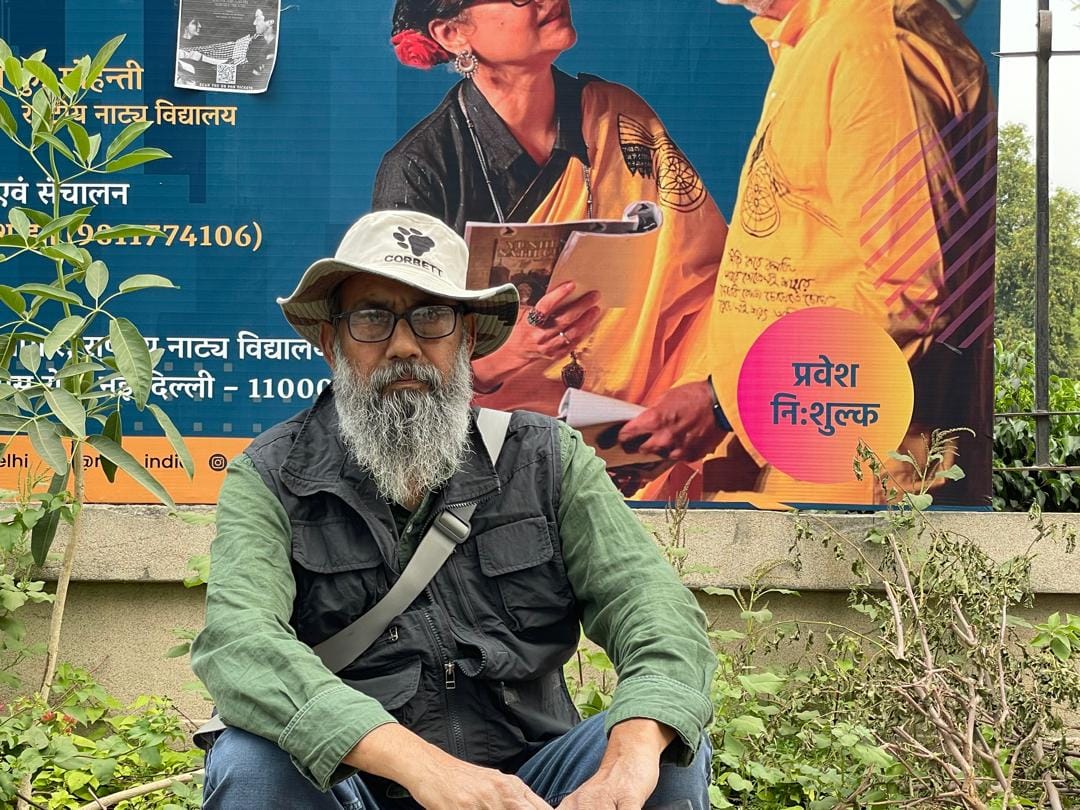
FOR A CAUSE: Suresh Nautiyal launched the India Greens Party in 2017 to bring environmental concerns to national limelight
Suresh Nautiyal, founder-mentor of India’s first pan-nation green party, is a playwright, poet, and a former journalist, who has championed the cause of the environment for over two decades now. His India Greens Party is contesting the ongoing Lok Sabha Polls from three seats.
In an exclusive interview with Patriot, Nautiyal talks about why conventional political parties hardly focus on issues of environmental sustainability, why green politics is the answer or if it’s too late to turn the wheel.
Excerpts:
How did you get introduced to green politics?
In 2004, I visited Finland where I had my first interaction with green politics and parties. Then in 2005, I had the opportunity to attend a conference by the Asia Pacific Greens Federation, formerly known as Asia Pacific Greens Network, which is a federation of national green parties and organisations active in the Asia Pacific region. At the time, I was also a part of the Uttarakhand Kranti Dal and urged my leaders there to turn it into a green party. Due to difference of opinion on coalition partners after the Uttarakhand Assembly elections in 2007, I exited the outfit. By then I had been influenced by green politics. In 2009, I became the founding member of Uttarakhand Parivartan Party, a green party. However, friends and colleagues alike suggested that I take the movement forward to the national level and thus, India Greens Party was born in 2017. At the moment, we consist of around 1,000 members who are active in 27 states. Although our membership is small, we are all thinking individuals sensitive to the idea of environment conservation.
Do you feel environment features in the agenda of conventional political parties?
Unfortunately, environment does not really figure in the manifestos of conventional parties such as Congress and BJP. If one goes through their promises, nothing serious about the environment can be found. India is yet to catch up with the idea of green politics and I believe it would take at least 15 years for green parties in India to have a future. Parties in India do not wish to change, and the status quo actually profits them. Also, I don’t believe we are dealing with climate change though we are facing acute climate crisis. We are facing food insecurity, water and air pollution and many such problems. These political parties are driven by corporate money. We all know how empty vessels make the most noise. The planet is not in danger, humanity is. The planet will recover from this climate crisis, however human art, literature, and culture will be endangered and will get lost.
How do you feel people in the country have responded to the idea of green politics?
It is indeed very unfortunate to say, but more than 90% of the people do not know about green politics. There is not much awareness among people about the various environmental problems plaguing the society today. Although we are trying to educate people, we as a green party really have no support from the media and lack financial resources. We avoid big money from industries or corporations with vested interests as we want an independent voice with no external pressures. I figure a very slow growth for a green party like ours but I am very hopeful about the youth. Environment is a much talked about topic. Many of our volunteers are from the young population. Our local units are also involved with local issues such as the Aarey forest movement in Mumbai and we are also supporting conservation of Aravallis on the ground. Being a green, I am always hopeful about humanity.
How does the India Greens Party take its message to the ground?
We have a network of women and ‘Young Greens’ where the youth can also participate. Our party firmly believes in participative democracy and thus, we have around 25 committees on sensitive issues such as rights of marginalised communities, sustainable development and so forth. However, it is also true that we are always affected by financial crunch. We have three candidates contesting Lok Sabha elections in three different states — Maharashtra, Delhi and Punjab. However, the resources for the electoral contest are being paid for from our own pockets. For these Lok Sabha elections, we have turned to social media and direct one-to-one contact with residents. Our Delhi candidate intends to use pamphlets as well. We will also employ placards at places such as pedestrian crossings as we do not believe in big rallies which are a source of noise pollution. These massive motorbike rallies and roadshows used by parties to attract voters is one of the most polluting activities. Campaigning with the help of social media also saves paper.
What is your vision for the India Greens Party in the future?
We are aware of the result of these elections. However, we are still contesting as we want to propagate our philosophy and ideology of green politics. We want to introduce our party to the voters and citizens of this nation. Problems such as air pollution and landfill management are now an electoral issue. In future, any party, no matter which ideological cloth it is cut from will have to feature environmental agenda in its promises.
Police recovered 20 cartons containing 1,000 quarters of alcohol labelled "For Sale in Haryana Only"…
Limited-period offering at Radisson Blu Plaza Delhi Airport presents a carefully sequenced dining experience
the aerial survey was conducted between February 16 and 20 across Khyala, Vishnu Garden, Ranhola,…
Presented by Artisera at Bikaner House, the two-person exhibition brings together Ashu Gupta and Sangeeta…
Unidentified motorcycle-borne assailants fired at a Farsh Bazar house in the early hours; no injuries…
Delhi, placed in Pool H, recorded a commanding 64-42 victory over Tripura. Ashish led from…